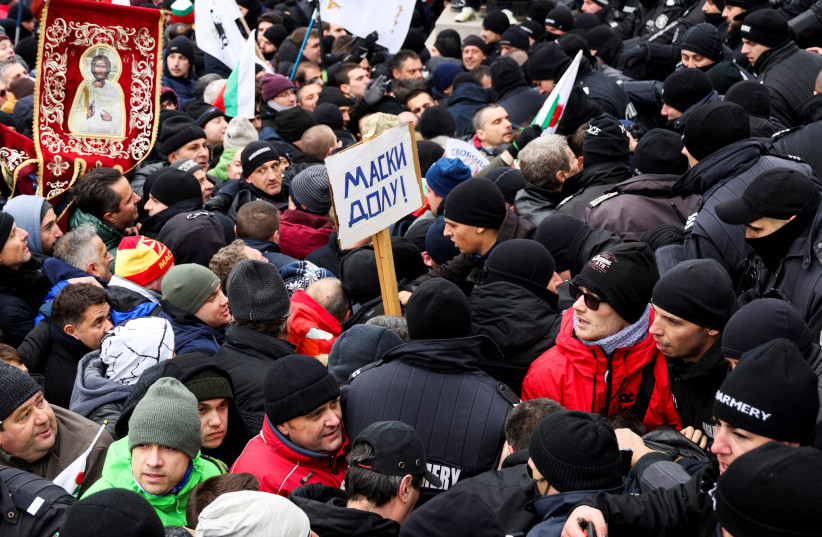Anti-vaccine protesters tried to storm the Bulgarian parliament on Wednesday and briefly scuffled with police officers during a massive rally against coronavirus restrictions in downtown Sofia.
Tensions rose an hour after about 3,000 people gathered in front of the parliament building, demanding the lifting of a mandatory health pass which they said trampled on their rights and was a back-door means of forcing people to get vaccinated.
Protesters, many of whom arrived on buses for the rally, pushed back a police cordon around parliament and reached the front doors of the building.
They stopped short of breaking in and called on lawmakers to come out and address their demands. Several people, including police officers, were injured during the brief clashes.
Waving national flags and flags of the ultra-nationalist Revival party, which organized the rally, they chanted "Freedom" and "Mafia" and decried all measures against the virus.

"I do not approve of the green certificates. I do not approve that the children are being stopped from attending classes. I do not see the logic of these things," 39-year old engineer Asparuh Mitov told Reuters at the start of the rally.
Bulgarians have to wear masks indoors and on public transport and show a health pass, given to people who are vaccinated, recovered or who have tested negative for the virus, to get into restaurants, cafes and shopping malls and gyms.
The least vaccinated country in the European Union, Bulgaria reported record high nL1N2TS09X daily infections on Wednesday, largely fueled by the highly contagious Omicron variant.
Prime Minister Kiril Petkov, who took office last month and pledged to spur vaccinations in the Balkan country, told BTV channel he regretted he could not meet with the protesters, but was ready to do so on Friday, when his quarantine will be over. Petkov, President Rumen Radev and senior ministers went into self-isolation nL1N2TR0K6 after a participant at a security meeting they attended on Monday tested positive for the coronavirus.
He reiterated that the health pass would not be lifted.
"At this moment, when the cases are surging, and with understanding the link between the number of vaccinated people and the health pass, it cannot be lifted," Petkov said.
